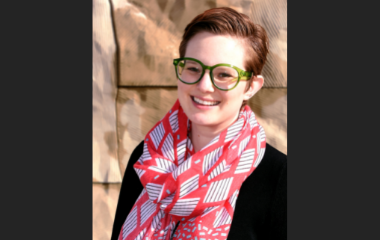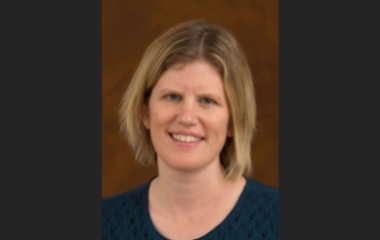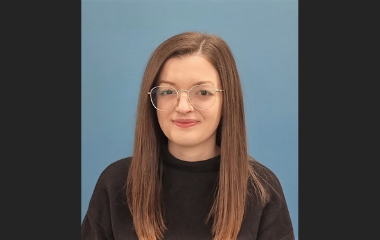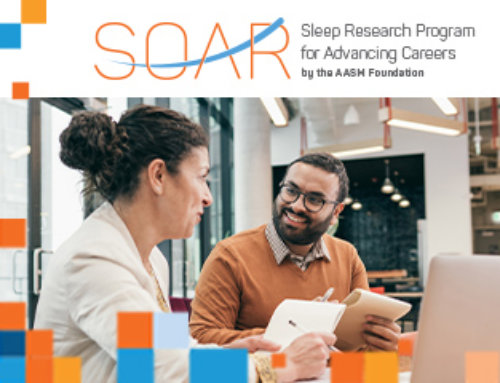The AASM Foundation Board of Directors recently approved more than $1.3 million in funding for 6 new projects as part of the 2021 Strategic Research Grant program, which supports investigator-initiated, high-impact research projects aimed at addressing gaps in knowledge that impact the ability to provide optimal, patient-centered, cost-effective diagnosis and care for patients with sleep disorders.
The funded projects will address research gaps in the behavioral and psychological treatments for chronic insomnia disorder and will also focus on high-impact research topics related to the American Academy of Sleep Medicine strategic plan.
 Suzanne Bertisch, MD, MPH
Suzanne Bertisch, MD, MPH
Brigham and Women’s Hospital, Harvard Medical School
Testing the Efficacy of Telehealth Brief Behavioral Treatment for Insomnia for Socioeconomically Disadvantaged Adults
About the Project
Despite the prevalence of insomnia among socioeconomically disadvantaged adults, few insomnia interventions have targeted this group. The project team will conduct a randomized trial of 64 socioeconomically disadvantaged adults with insomnia to determine the efficacy of an adapted tele-brief behavioral of insomnia (BBTI). The project team hypothesizes that compared to patients randomized to attention-control, those randomized to BBTI will have greater improvements in insomnia symptoms at three months. This project will advance insomnia treatments for socioeconomically disadvantaged adults.
Potential Project Impact
Dr. Bertisch’s career goal is to establish a research center focused on the evaluation and implementation of behavioral sleep interventions for socioeconomically disadvantaged adults. This project directly addresses the current health inequities in insomnia care: access, cost, time, and language/literacy barriers. Testing the efficacy of a scalable, brief treatment for insomnia will directly inform insomnia care in socioeconomically disadvantaged adults and will inform Dr. Bertisch’s future grants testing the implementation and long-term impact of insomnia treatments.
 Philip Cheng, PhD
Philip Cheng, PhD
Henry Ford Health System
Innovations in Wearable Technology for Correcting Circadian Misalignment in Shift Work Disorder
About the Project
Shift workers are critical to essential 24-hour operations; however, many never adapt to the inverted sleep-wake schedule, leading to circadian misalignment and shift work disorder (SWD). One critical barrier to treating SWD has been a lack of clinically feasible approaches to quantifying circadian misalignment. To address this, the project team will test the use of Apple Watch in conjunction with a consumer-oriented mobile application (SHIFT) to assess and correct for circadian misalignment in night shift workers.
Potential Project Impact
Because wearable technologies and mobile applications have high scalability, Dr. Cheng hopes that this project will provide validation for this approach so that night shift workers can have increased access to effective treatments for circadian misalignment. The AASM Foundation funding will also support Dr. Cheng’s long-term goals of conducting translational sleep and circadian medicine research.
 Jessee Dietch, PhD
Jessee Dietch, PhD
Oregon State University
Piloting an Adaptation of Cognitive Behavioral Therapy for Insomnia for Shift Workers (CBTI-Shift)
About the Project
Insomnia is common among shift workers. However, the gold standard treatment, cognitive-behavioral therapy for insomnia (CBT-I), has rarely been tested among shift workers and is not optimized for their unique schedules and challenges. The project will pilot test the feasibility and acceptability of CBTI-Shift, which adapts and personalizes CBT-I for shift workers. The long-term objective of the project is to improve the sleep, health, and wellbeing of shift workers using an evidence-based treatment of insomnia.
Potential Project Impact
This study will be a critical first step towards adapting cognitive behavioral therapy for insomnia for the unique needs of shift workers, whose sleep health needs have not been adequately addressed. Funding from the AASM Foundation will support the career of Dr. Dietch, an early career clinical researcher, whose research program is focused on developing and increasing accessibility to evidence-based behavioral sleep medicine interventions among underserved populations such as shift workers.
 Sarah Morsbach Honaker, PhD, DBSM
Sarah Morsbach Honaker, PhD, DBSM
Trustees of Indiana University
Adapting CBT-I for and with Adolescents
About the Project
Insomnia is common in adolescents, yet most insomnia treatments have been developed for adults. This project will adapt an efficacious adult treatment, cognitive behavioral therapy for insomnia (CBT-I) for adolescents. To develop the adapted protocol, the project team will conduct virtual groups with key stakeholders, including adolescents, parents, and providers. The project team will then conduct a randomized controlled trial of CBT-IT to assess its efficacy in treating insomnia in adolescents.
Potential Project Impact
Insomnia can lead to mood, academic, and health difficulties in teens, and the need for a targeted insomnia treatment in this age group is critical. This grant will further support the careers of three pediatric behavioral sleep researchers, including Dr. Honaker.
 Neomi Shah, MD, MPH, MS
Neomi Shah, MD, MPH, MS
Icahn School of Medicine at Mount Sinai
Application of Machine-Learning to Assess Heterogeneity of Continuous Positive Airway Pressure Effect on Major Adverse Cardiovascular Events in the ISAACC Trial (Impact of Sleep Apnea in the Evolution of Acute Coronary Syndrome)
About the Project
Obstructive sleep apnea (OSA) is associated with incident cardiovascular (CV) disease, however the impact of OSA treatment on CVD events is indeterminate. Furthermore, there is a growing body of evidence suggesting OSA may be cardioprotective. Earlier studies did not discover significant effects of CPAP treatment on CV events, likely because of heterogeneity of CPAP effect in patients with varying baseline clinical characteristics resulting in the masking of treatment effects. The project team will implement a subtyping approach using machine learning to identify subgroups of patients in the ISAACC trial that may benefit or are perhaps harmed from CPAP therapy.
Potential Project Impact
The project will develop a clinical decision tool to identify sleep apnea patients with underlying coronary artery disease where CPAP may have a beneficial or harmful effect on future CV event. The project’s validated decision rule will be implemented as an R-base application and will be made available online. The eventual goal is to publish the findings in a high-impact journal as it will likely be paradigm shifting. In the future, Dr. Shah will apply for NIH funding for a larger R01/U01 to design and implement a clinical trial.
 Hannah Scott, PhD
Hannah Scott, PhD
Flinders University
A Randomized Controlled Trial Comparing Home-Based Intensive Sleep Retraining to Online CBT-I and The Combination for the Treatment of Chronic Insomnia Disorder
About the Project
This randomized controlled trial will compare the efficacy of two remote therapeutics, namely Intensive Sleep Retraining (THIM) and an online CBT-I program (SHUT-I), against a control condition for treating chronic insomnia disorder. The project will also evaluate the combination of remote therapies (THIM followed by SHUT-I) to determine whether this novel approach leads to greater benefits than either treatment alone. The project will inform clinical decision-making about choice of therapy and build a case for health insurance-funded remote therapy options for insomnia.
Potential Project Impact
From this project, Dr. Scott will learn which remote therapies are most efficacious for the treatment of chronic insomnia disorder. This will greatly assist the implementation of evidence-based, practical, cost-effective remote therapies swiftly into clinical practice and at a large scale. Additionally, the AASM Foundation funding will enable the continuation of Dr. Scott’s research program in the use of intensive sleep retraining and the clinical utility of wearable technology to treat chronic insomnia.





